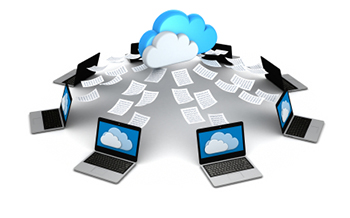
1. Backup Files Every Day - As catastrophic as data loss is, the number of businesses that still are not backing up their network is unbelievable. According to the Symantec Small to Medium Size Businesses (SMB) data, only 23% of SMBs are backing up their data on a daily basis and fewer than 50% are backing up data weekly. Any number of events can result in data loss, so the importance of frequently backing up your network cannot be overstated.
2. Ensure Backup Procedures Are Checked Regularly - Many times business owners think that they have a backup system in place only to find out after it’s too late that it hasn’t been working properly. It may seem like your files are being backed up daily, however, the backup could have become corrupt or it is not backing up huge chunks of critical data. Check your backup procedures regularly to ensure they are working properly in order to be sure that ALL of your data can be recovered. In the age of BYOD (Bring-Your-Own-Devices) it is also important to frequently backup data on your employee’s personal laptops, iPads or Blackberrys, so make sure you have a procedure in place to check those backups as well.
3. Make Sure Updated Virus Protection and Firewalls Are Always Enabled - Far too many companies either have no virus protection, expired virus software licenses, or disabled virus programs that aren’t running at all. This makes their business technology vulnerable to virus attacks from emails, spam, data downloads, and unreputable websites. Further, because of inadequate firewall protection about 40% of small to medium businesses will have their network accessed by a hacker. Chances are, when these businesses are attacked they will be entirely unaware it is happening. In order to protect your valuable data and assets, ensure your virus protection is adequate, up-to-date and functioning properly and that your firewall is intact. Finally, don’t forget to update security patches and change passwords when an employee leaves in order to deter hacking attempts.
4. Monitor Server Drives - Dangerously full server drives can bring their own set of problems - ranging from program and server crashes to sluggish email delivery. Proactive monitoring and maintenance of your server can spare your business a lot of problems down the road.
5. Regularly Check Critical Built-In Logs - Very few problems with technology emerge suddenly. These problems typically progress over time and evolve into more serious problems. Frequently review your critical built-in log files to help identify the problem before it has gotten out of control and wreaks havoc on your business infrastructure.
2. Ensure Backup Procedures Are Checked Regularly - Many times business owners think that they have a backup system in place only to find out after it’s too late that it hasn’t been working properly. It may seem like your files are being backed up daily, however, the backup could have become corrupt or it is not backing up huge chunks of critical data. Check your backup procedures regularly to ensure they are working properly in order to be sure that ALL of your data can be recovered. In the age of BYOD (Bring-Your-Own-Devices) it is also important to frequently backup data on your employee’s personal laptops, iPads or Blackberrys, so make sure you have a procedure in place to check those backups as well.
3. Make Sure Updated Virus Protection and Firewalls Are Always Enabled - Far too many companies either have no virus protection, expired virus software licenses, or disabled virus programs that aren’t running at all. This makes their business technology vulnerable to virus attacks from emails, spam, data downloads, and unreputable websites. Further, because of inadequate firewall protection about 40% of small to medium businesses will have their network accessed by a hacker. Chances are, when these businesses are attacked they will be entirely unaware it is happening. In order to protect your valuable data and assets, ensure your virus protection is adequate, up-to-date and functioning properly and that your firewall is intact. Finally, don’t forget to update security patches and change passwords when an employee leaves in order to deter hacking attempts.
4. Monitor Server Drives - Dangerously full server drives can bring their own set of problems - ranging from program and server crashes to sluggish email delivery. Proactive monitoring and maintenance of your server can spare your business a lot of problems down the road.
5. Regularly Check Critical Built-In Logs - Very few problems with technology emerge suddenly. These problems typically progress over time and evolve into more serious problems. Frequently review your critical built-in log files to help identify the problem before it has gotten out of control and wreaks havoc on your business infrastructure.

Comments
Post a Comment